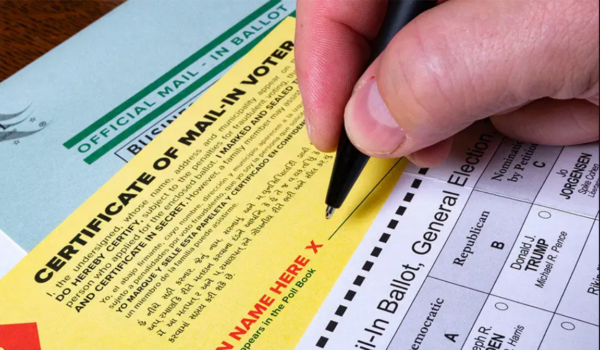Politics and sexual misconduct may seem related to outsiders. Some politicians resign after scandals, while others ride out the storm.
How does sexual harassment affect voters? Brunel University London and Queen Mary University of London studied whether people are less likely to vote for a candidate accused of sexual harassment and how personal values affect this.
Some people punish politicians for sexual wrongdoing, while others vote for them. Studies show voters care more about corruption than sexual scandals.
According to research, a scandal during an election campaign is worse for a candidate than an earlier disclosure. Whether a scandal surfaces early or late in a campaign might affect support.
Repeating scandal news can worsen its repercussions, but not repeating it can reduce them.

Dr. Manu Savani, Senior Lecturer in Behavioural Public Policy at Brunel University London, said: “Individual values guide people in their decision making in all aspects of life, including politics. We wondered if this explained why some voters were more likely to penalize candidates accused of sexual misconduct at the polls.
The new study, published in Electoral Studies, included 704 American adults who were eligible to vote in the 2020 US elections and participated in an online survey. They were briefed on a possible male governor candidate. Family man from the participant’s preferred party. Based on his policy preferences, participants were asked if they would vote for him. 90% of survey respondents had a positive initial impression and were likely to vote for the governor.
Next, participants were randomly assigned to two groups and given further candidate information. One group was informed about his work with local schools, which was predicted to mainly leave voters’ sentiments unaltered.
The second group received different candidate information. After two former employees accused him of sexual harassment three years earlier, the media covered the matter. The candidate was sued and settled.
The first group’s voting intention improved to 94% after reading the candidate’s good material. After reading about the sexual harassment case, the second group decreased voting intention to 43%.
“A sizeable minority would still vote for a candidate accused of sexual harassment,” said Dr. Savani.
“Personal values appear strongly associated with these outcomes.”
Dr. Sofia Collignon, Queen Mary University of London Lecturer in Comparative Politics, said: ‘We discovered that personal values of universalism and kindness were particularly essential. Voters who valued others over power and ambition were more inclined to move from the accused candidate.
Another intriguing conclusion was that 60-69-year-olds were more favorable to the accused candidate than 18-30-year-olds in both groups. This is good news for scandal-tainted politicians because elderly people vote more.
Dr. Savani added: “As the research involved American participants we are not yet certain if the findings could be applicable to the UK. This online study with a simplified and hypothetical scenario has limits, but the concept that values can explain why people react differently to the same news, even severe claims of misbehavior, is fascinating.”

